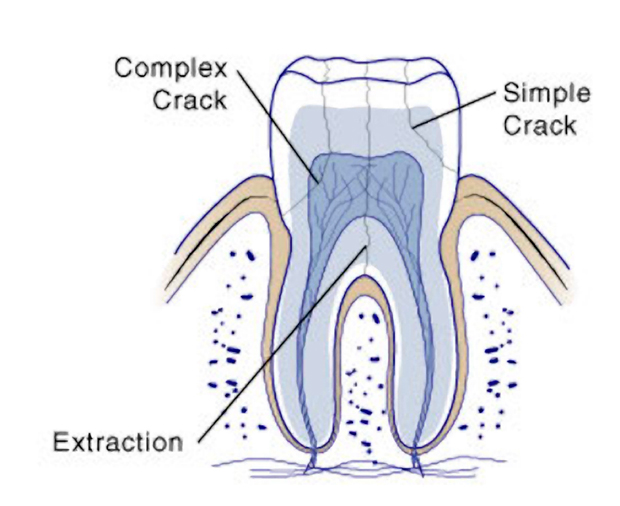NOVEMBER 2007
What to do when you break or crack a tooth?
Why do dentists often get an increase in patients attending with the symptoms of a cracked tooth after Christmas? Usually the culprits are hard nuts, toffees or pork crackling. Often the first signs of trouble are a sharp pain or a loud noise, before the pain begins. The cracked tooth syndrome is not restricted to the festive season though. This syndrome can be one dentistry’s biggest problems and often results in tooth extraction, especially if left untreated.

Signs and Symptoms
- Pain on chewing or when you release the biting pressure (this is because the crack is opening and closing).
- Sensitivity to hot and cold foods or sweet things.
- Can slowly progress to a constant toothache (this usually means that the nerve of the tooth is now damaged).
The two major causes of cracked teeth are:
- Habits – this involves people who clench or grind their teeth or chew on objects such as hard sweets. The tooth is not strong enough for this constant trauma. This is proving to be one of the greatest problems we have in dentistry today. A simple occlusal splint is the way to stop this.
- Large Fillings – teeth with fillings in them are mechanically weaker, as there is less tooth structure present to hold the tooth together. Add a habit to this weakened tooth and a crack is even more likely.
Treatment
A visit to your FirstBite dentist as soon as possible is important to increase the chances of saving the tooth or preventing more extensive and expensive treatment. A simple crack is where the nerve of the tooth is not involved. These teeth may require just a filling or a filling and a crown. A complex crack has damaged the nerve of the tooth and may require root canal treatment before a filling and crown can be placed. In some cases the complex crack has split the tooth. In these cases the only treatment is an extraction. At FirstBite Dental you can rest easy knowing we will advise you of the best and most appropriate treatment for your tooth.


